Africa youth activists shape the CSW69 conversations, reinforcing young people’s role in driving systemic change for women and girls
Date:
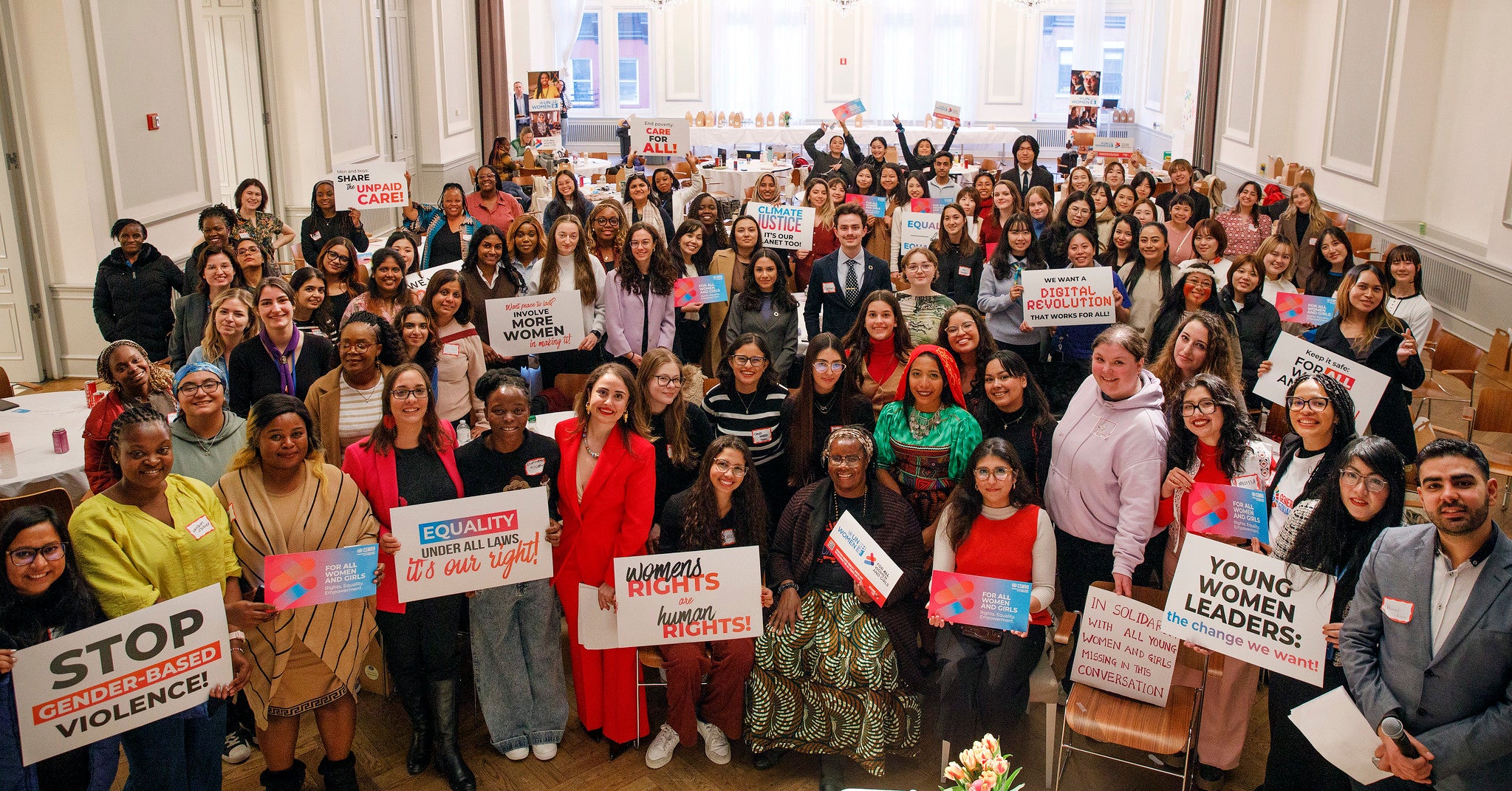
Scenes from the CSW69 Global Youth Dialogue: Influencing the Implementation of the Beijing Declaration and Platform for Action and Beijing+30 Action Agenda held in New York on 9 March 2025. Photo: UN Women/Ryan Brown
As the 69th session of the Commission on the Status of Women (CSW69) concluded at the United Nations Headquarters in New York (March 10–21, 2025), the Generation Equality initiative continues to show its key role in accelerating gender equality worldwide, through the impactful work of its Commitment Makers in the Eastern and Southern Africa region, and through the active participation of young women in shaping the future for all women and girls.
Young activists from all over the world convened to strategize on influencing the implementation of the Beijing+30 Action Agenda. Through roundtables, intergenerational dialogues, and targeted strategy sessions, young feminists articulated the urgent need for redistributing power, increasing accountability, strategic institutional reforms, and the recognition of young feminists as equal partners, rather than mere stakeholders.
Among them were youth activists, including Generation Equality youth advocates from East and Southern Africa. Let’s hear what they had to say!
Wanjũhĩ Njoroge, Kenya
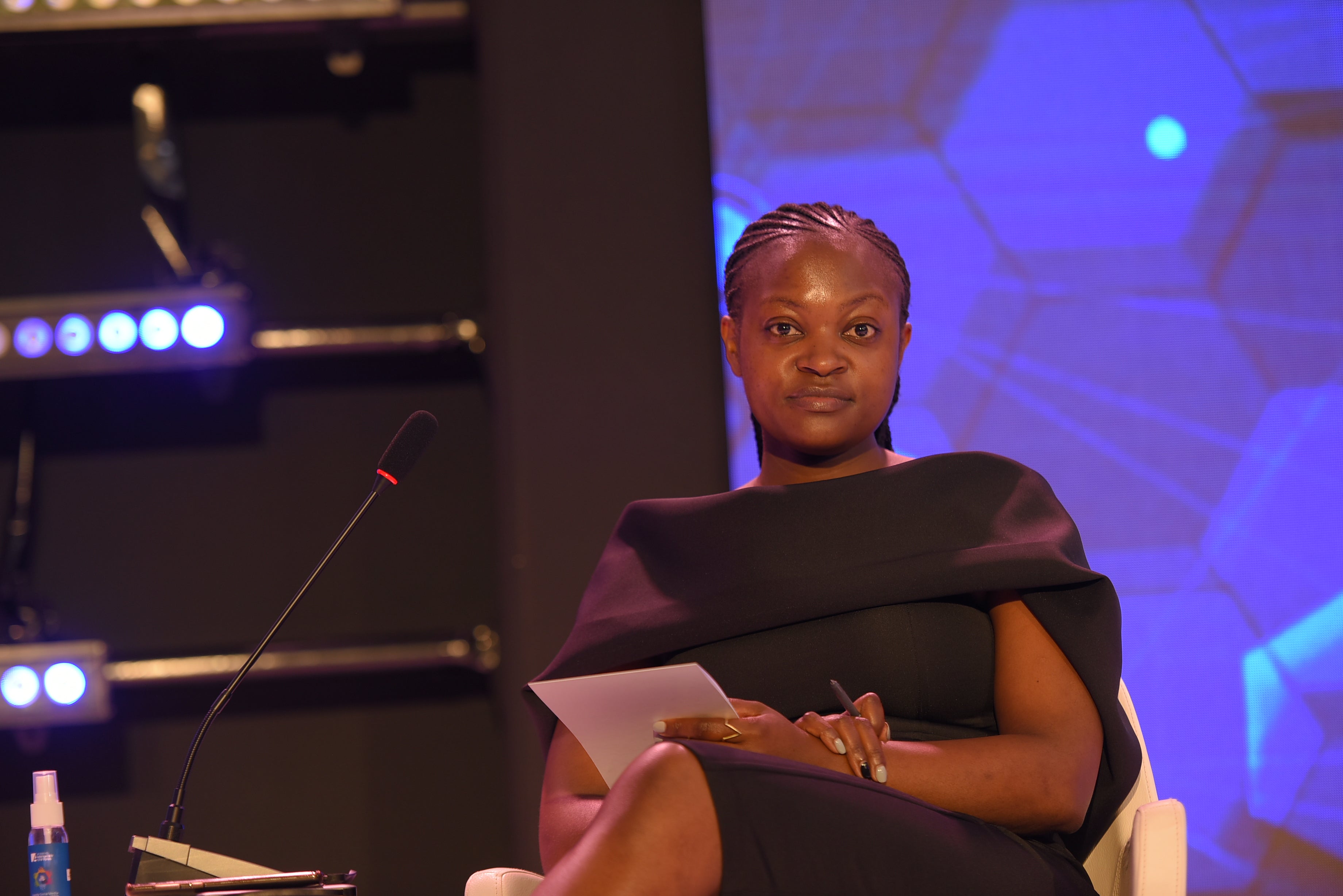
Wanjuhi Njoroge., from UN Women Regional Youth Steering Committee (RYSC) spoke for African youth, celebrating progress and highlighting concerns on youth and inclusion, gender-based violence, and data accountability at the CSW69 Ministerial meeting 2025. Photo: KAS Uganda and S.Sudan
Generation Equality National Youth Activist, Beijing+30 Africa Steering Committee member, UN Women ESARO Youth CSAG member, and a climate activist from Kenya, Wanjũhĩ Njoroge, delivered powerful opening remarks at the CSW69, highlighting both progress and persistent challenges in advancing gender equality.
"As we mark 30 years since the Beijing Declaration, I stand before you with a profound sense of responsibility not just as a young African woman, but as part of a generation that refuses to inherit unfinished business," Wanjũhĩ stated in her address to the Commission.
Wanjũhĩ acknowledged remarkable progress, including Rwanda's world-leading female parliamentary representation at 63,8% and economic empowerment programs like Kenya's Ajira Digital initiative. However, there’s critical pushbacks that demand urgent attention.
She also shared her experience in influencing the major intergovernmental processes, such as Beijing+30: “I witnessed such deliberate inclusion of young people in pre-CSW planning and this was a first for me! Over 100 young people were supported to participate in the pre-CSW meeting in Addis, including representatives from CSOs. Additionally, 10 young people gained access to the member state negotiations - from the technical team drafting sessions all the way to the Ministerial Conference. We were not just observers; we had a real opportunity to shape the Africa Position Paper, ensuring that youth perspectives were part of the official outcome.”
Reflecting on the challenges that need to be tackled, Wanjũhĩ highlighted the lack of real data as a way to measure accountability, the rising adolescent pregnancies and HIV infections in the African region and the lack of funding for youth and gender programs in national budgets.
In a powerful call to action in her address to the Ministers, the Kenyan activist called for action and gender transformative financing.
“Governments must allocate dedicated funding for youth and people with disabilities programs, ensuring financial resources go where they are needed most. We demand permanent youth positions at decision-making tables, including Youth Commissioner roles in the African Union”, she declared.
Melissa Ruvimbo Kubvoruno, Zimbabwe
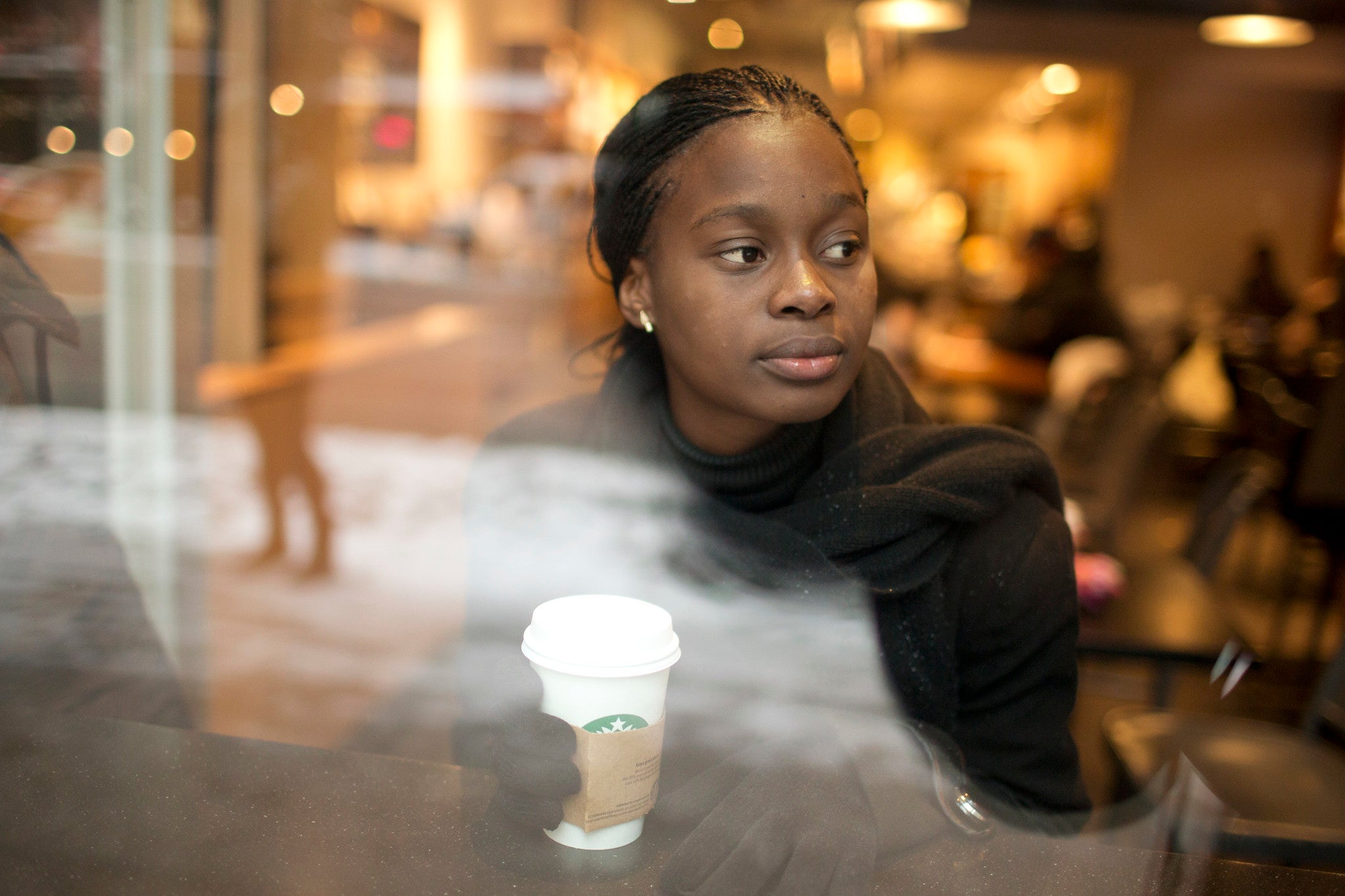
Melissa Ruvimbo Kubvoruno, is an activist from Zimbabwe. A member of the World Young Women’s Christian Association, she is a passionate advocate for gender equality. As a Generation Equality Commitment Maker, she was present at CSW69 discussions in New York. Photo: UN Women/Ryan Brown
Representing the GIMAC Young Women’s Network (GYWN), Melissa participated in a series of events at CSW69 that not only amplified youth voices but also highlighted Africa’s progress and pressing challenges in the fight for gender equality.
“One of the most significant events I participated in CSW69 was the Global Youth Forum, which provided a platform for young people to discuss the critical areas of the Beijing Platform for Action. We reflected on progress across different nations and celebrated a major milestone - the recently adopted Convention on Ending Violence Against Women and Girls in Africa. This moment was both a celebration and a call to action, reminding us of the responsibility we have as young advocates to amplify the voices of those who are often excluded from these spaces. A powerful symbol of this was the empty chair left at the podium throughout the forum, dedicated to the young women and girls who lacked the resources or access to be present and represent themselves in the CSW69 process”.
Another highlight for Melissa was participating in a UN Women-facilitated event celebrating the adoption of the of the Convention on Ending Violence Against Women and Girls. “This was a truly historic and inspiring moment. As a young African woman, I felt immense pride in witnessing the global community celebrate alongside us and engage in discussions on the ratification and implementation of the convention.”
Reflecting on her most powerful insights from CSW69, the Commitment Maker emphasized the crucial role of young women in shaping global advocacy. “We are witnessing a vibrant movement of young women who are not just demanding their rights but actively showing agency and leadership. This moment calls for meaningful engagement - not just as participants but as decision-makers”.
My message to decision-makers in Africa is clear: “We must take ownership of funding and support young women’s participation in gender equality advocacy. Investment in young women and girls must start at home. African governments and institutions need to prioritize funding for youth-led initiatives, ensuring that young women have the platforms, resources and opportunities to engage meaningfully in decision-making processes”.
Calling on her fellow young feminists, Mellisa asked them “Let’s start now - because the future of gender equality in Africa begins with the actions we take today.
Chioniso Michelle Murinda, Zimbabwe
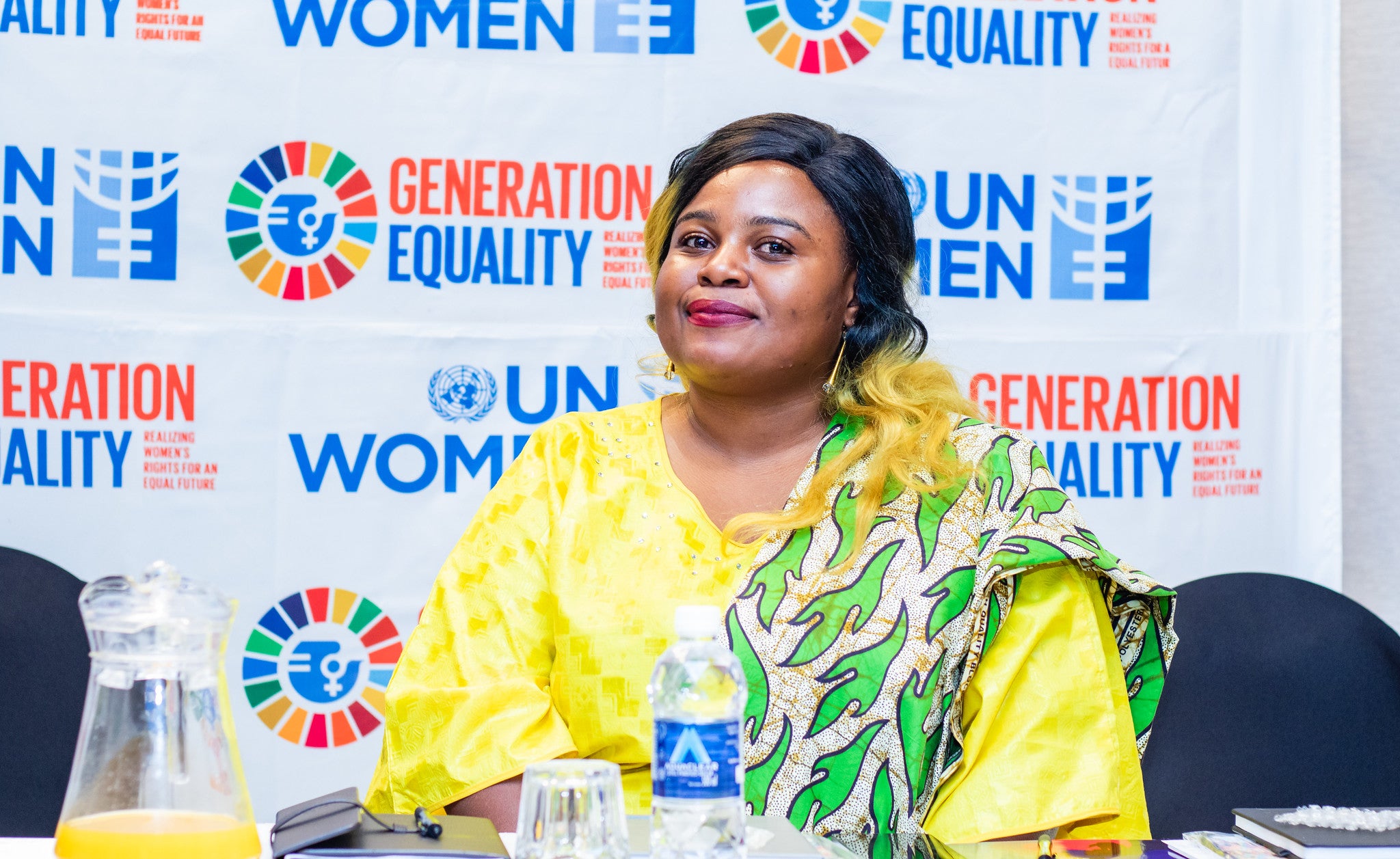
Chioniso Michelle Murinda, AWLN Youth Co-Chairperson from Zimbabwe participated in a series of events to amplify the voices of young African feminists at CSW69. Photo: UN Women
Michelle Murinda, AWLN Youth Co-Chairperson from Zimbabwe, participated in a series of high-level and side events to amplify the voices of young African feminists.
As a member of the UN Women-supported Beijing+30 Africa Steering Committee, Michelle played a key role in shaping discussions around the progress and future of gender equality in Africa. The Steering Committee, which oversees regional consultations across the whole world, has been instrumental in generating insights and recommendations that were presented at CSW69. Through various engagements, she contributed to amplifying Africa’s perspectives on women's leadership, economic empowerment, and gender-responsive policies, reinforcing the need for stronger commitments from global stakeholders.
“One of the most powerful insights from CSW69 was the recognition that youth are not merely participants, but active co-creators of policy and change” she shared.
Another lesson that Michelle took from the experience was the need to transition from commitment to implementation: “Youth engagement must be structured, resourced, and reflected in national action plans to drive transformative outcomes. Additionally, collaboration between state and non-state actors is essential to amplify the momentum of global frameworks such as the Beijing+30 review”, she said.
Despite the progress, Michelle acknowledged persistent challenges young feminists face, including limited access to decision-making spaces and patriarchal norms that discredit youth leadership. She emphasized the need for institutionalized youth quotas, flexible funding for youth-led initiatives and youth-led monitoring frameworks into government reporting.
In her message to African leaders, Michelle said that “Decision-makers must recognize that the experiences of young people, especially young women, are critical to achieving gender equality. Youth inclusion should not be symbolic, it must be codified in law, budgeted in national plans, and supported through enabling environments.”
Calling on her fellow young feminists, she asked them to stay mobilized beyond CSW69: “Our voices matter, and our leadership is non-negotiable. Let us co-lead the present, not just prepare for the future”.
Queen Kimmy Mwandira, Malawi
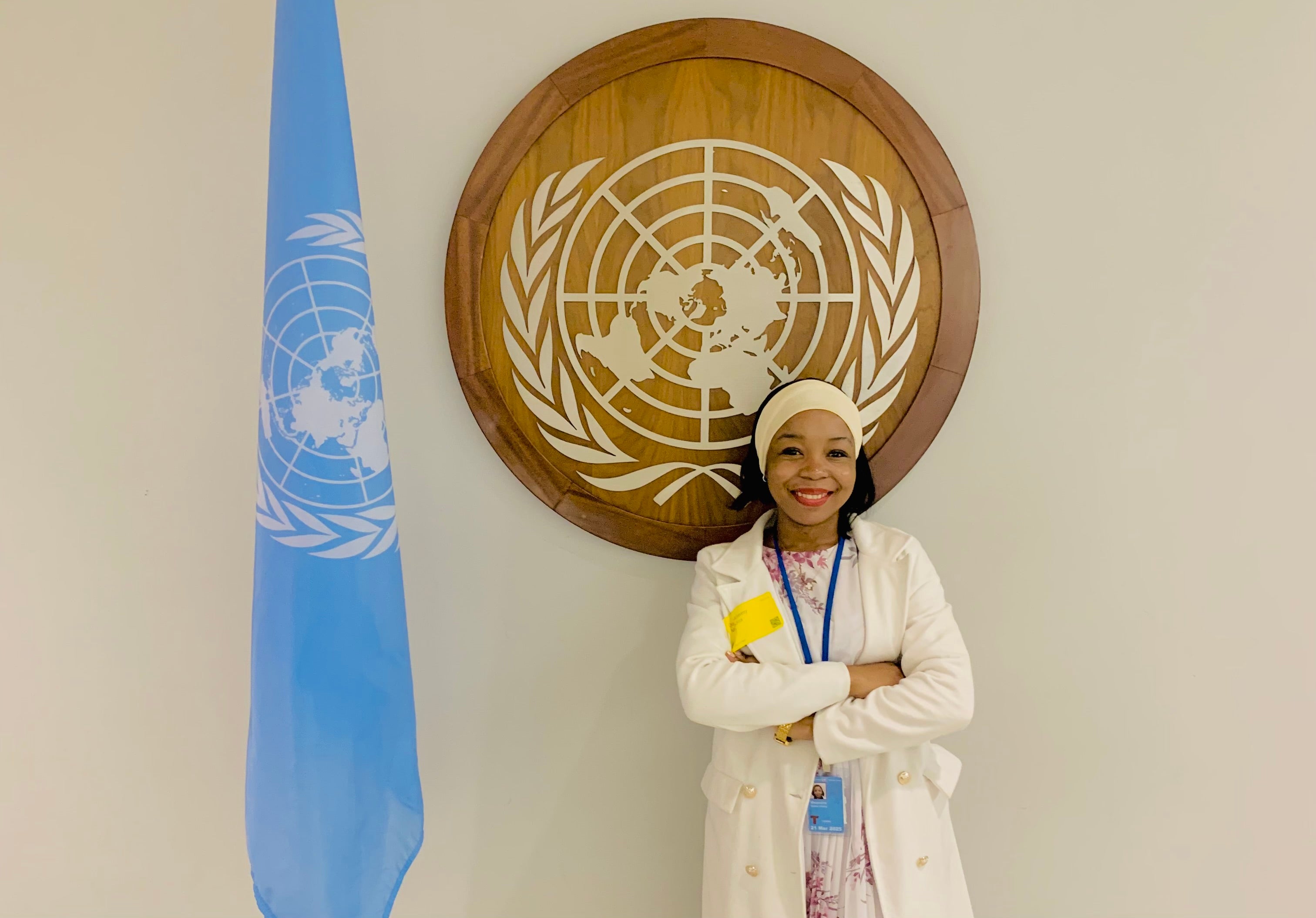
Queen Kimmy Mwandira, was present for the CSW69 discussions in New York.
Kimmy Mwandira, a young feminist advocate from Malawi, who facilitated one of the African group discussions during the Global Youth Dialogue, was among the youth voices who took center stage at CSW69.
Kimmy took part in high-level dialogues on accelerating the implementation of the Beijing Platform for Action sharing that “It was an amazing opportunity that helped me to identify areas to focus when advocating for the issues we face as young feminists”.
Reflecting on CSW69, she emphasized the need for a dedicated platform that brings young feminists together and she underlined the lack of funding for key gender initiatives. “We share similar challenges across the continent, and by uniting, we can find solutions and put them into action. We just lack the support and funding”.
For many young feminists across Africa, the fight for gender equality is not just about raising voices, it’s about having the resources to turn advocacy into action, as the youth activist underlines:
“The erosion of financial resources for women's rights and gender equality remains a persistent and critical issue. As young feminist, we are deeply concerned about the significant funding cuts implemented by various funding agencies and governments. These reductions pose a threat to the successful delivery of essential women’s rights initiatives in Africa”.
Kimmy call to action to African decision-makers is clear: “Make decisions that favour the wellbeing of your people and don't look into profits”.